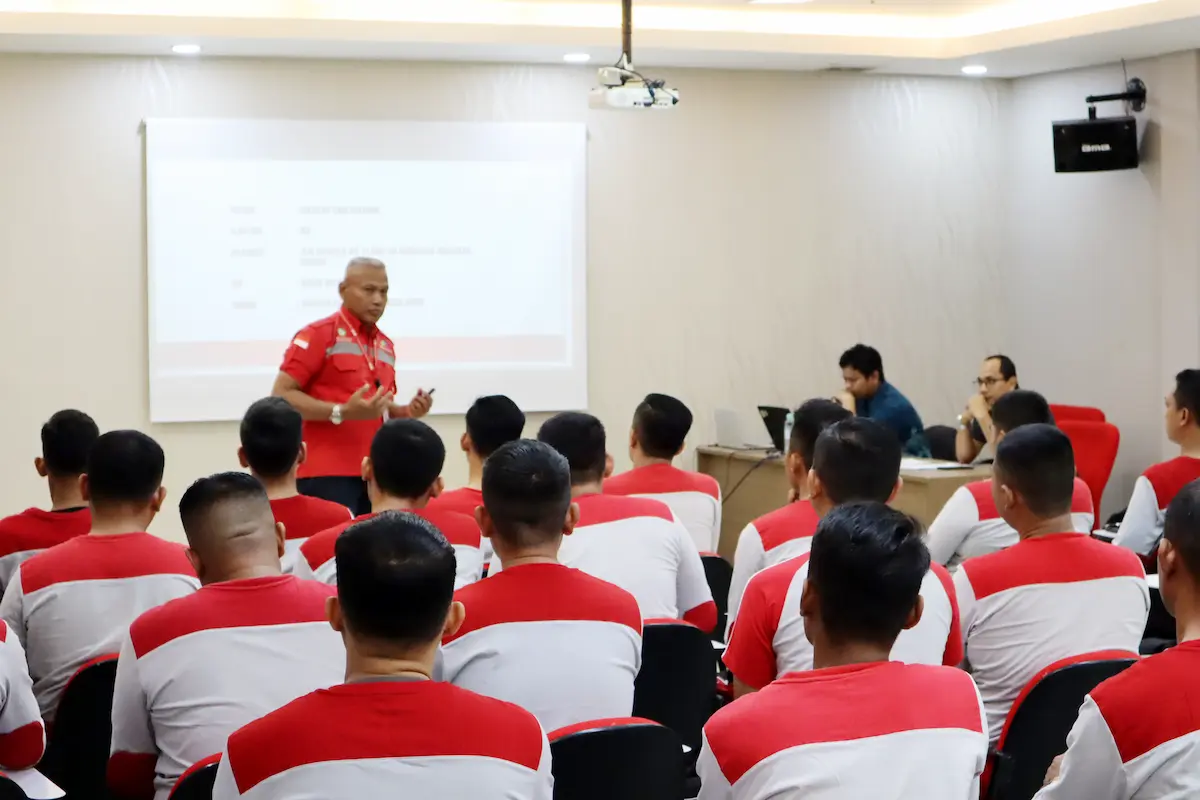12 Benefits of Employee Training to Boost Productivity
23 April 2025

In today’s highly competitive and dynamic work environment, improving the quality of human resources is key to a company’s success. One proven strategy is employee training.
Not only does training benefit individuals, but it also significantly impacts overall productivity and efficiency across the organization. But have you fully grasped the real benefits of employee training for your business? Find out below!
12 Benefits and Objectives of Employee Training
Effective employee training programs can create major shifts in performance, loyalty, and innovation in the workplace. Here are the key benefits and objectives you can gain through employee training:
1. Enhancing Work Productivity
Employee training is a crucial tool for improving and developing job competencies. Employees who regularly participate in training programs gain broader knowledge and skills. This directly contributes to increased productivity, as individuals are able to complete their tasks with higher standards and greater efficiency.
2. Keeps Up with Technological Developments
In the digital era, technology evolves rapidly. Ongoing training helps employees stay up to date with new tools and systems used in their jobs. This benefit is crucial for staying competitive in an increasingly modern industry.
3. Reduces Errors at Work
Employee training provides a deeper understanding of work procedures, equipment use, and operational standards. This minimizes errors that can negatively affect business processes, creating a safer and more orderly work environment.
Read Also: 10 Effective Communication Strategies to Implement in the Office
4. Increases Employee Satisfaction and Loyalty
When companies invest in employee development through training, it fosters a sense of value and empowerment. This leads to higher job satisfaction and employee loyalty—reducing turnover and increasing workforce stability.
5. Prepares Future Leaders
Employee training isn’t just about technical skills—it also includes managerial and leadership development. The right training programs help companies nurture future leaders from within, creating a smoother succession process and a stronger internal structure.
6. Encourages Innovation and Creativity
A learning-focused workplace encourages the generation of new ideas. Training programs that include discussions and case studies stimulate critical thinking and problem-solving. This benefit is vital for companies aiming to stay innovative and creatively address market challenges.
7. Improves Customer Service Quality
Good employee training enhances how employees interact with customers. From communication skills and product knowledge to complaint handling, training helps improve customer satisfaction and boost the company's public reputation.
8. Maintains Compliance with Industry Regulations
Some industries have strict regulations. Regular training ensures employees understand and follow applicable laws and standards. This helps the company avoid legal issues and protects its reputation.
9. Fostering Discipline, Attitude, and a Positive Work Ethic
Training is not only aimed at improving technical skills, but also at fostering a more professional work ethic. Through activities that promote character building and soft skills development, employees are encouraged to work with greater discipline, honesty, and responsibility.
As a result, companies can improve the overall quality of work while also building a healthy and sustainable workplace culture. A strong work ethic ultimately has a direct impact on overall employee performance.
10. Unlocking, Enhancing, and Developing Individual Potential
Training serves as a platform to enhance both technical and non-technical skills and knowledge. Each program is designed to strengthen specific competencies required for certain roles, while also offering personal development opportunities.
Through this process, employees gain not only advanced skills but also greater confidence in facing workplace challenges. This is crucial to achieving long-term optimal performance.
11. Aligning Competence with Job Qualifications
Another key objective of employee training is to align individual competencies with the specific qualifications and responsibilities of their roles. Training ensures that employees in designated positions thoroughly understand their functions.
This alignment helps boost productivity, improve performance, and reduce costs related to errors or inefficiencies. With a competent workforce, companies are better prepared to face dynamic business challenges.
Leadership training programs also play a vital role in creating clear career paths for employees seeking growth and greater responsibility. Ultimately, all of these efforts support the company’s goals of improving performance across all levels.
Read Also: 10 Skills a Receptionist Must Have to Look Professional
Types of Employee Training
After understanding the many benefits of employee training, it’s important to explore the various types of training that can be tailored to your company’s needs. Each program serves a different purpose depending on job roles, industries, and specific challenges:
1. Orientation Training
This type of employee training is usually provided to new hires to help them adapt to the workplace environment.
The materials cover company culture, vision and mission, internal policies, and organizational structure. With proper orientation training, the adaptation process becomes faster and more efficient.
2. Technical Training
Technical training is aimed at improving the specific technical skills required for daily tasks.
For example, learning how to operate software, machinery, or other job-related tools. The benefits of technical training directly impact employee productivity and the quality of work outcomes.
3. Soft Skills Training
Soft skills training focuses on developing communication, teamwork, leadership, and time management.
These skills are crucial for creating a harmonious and collaborative work environment. In addition, this type of training encourages employees to adopt a more professional attitude.
4. Workplace Safety Training
This type of employee training is essential in industries such as manufacturing, construction, or laboratories, where the risk of accidents is higher.
Employees are equipped with knowledge about safety procedures, the proper use of personal protective equipment (PPE), and accident response measures. The main goal is to create a safe workplace and minimize injury risks.
5. Managerial Training
Managerial training is designed to prepare employees who are moving into leadership roles. The curriculum covers decision-making, conflict management, team management, and communication strategies.
The benefits of managerial training are vital in shaping competent and inspiring leaders within the organization.
With the right combination of training programs, your company can develop a high-performing team that is adaptable and ready to face any challenge. Targeted training programs help enhance employee competencies, productivity, discipline, attitude, and work ethic in a holistic way.
As a result, the company not only gains reliable employees but also ensures consistent quality, innovation, and sustainable performance in an ever-changing business landscape. To secure employees with the right expertise, companies often need a trusted partner who can provide skilled professionals tailored to specific job qualifications.
This is where professional services like SOS play a crucial role. SOS is ready to help your company achieve operational goals more effectively and efficiently.
Read Also: 8 Benefits of a Positive Work Environment for Employees
Optimize Your Business Productivity with Skilled Workforce from SOS
Looking to improve operational performance without the hassle of managing internal training? SOS is your trusted manpower solution provider. With an empathetic approach and a professionally trained workforce, we understand your challenges and are ready to provide integrated solutions that work.
We offer comprehensive staffing services that help you access industry-standard personnel who are ready to perform and tailored to your needs. Not only does this boost productivity, but it also improves efficiency and workplace safety. Empower your team with top-tier talent from SOS. Contact us now via WhatsApp and discover the best solutions for your business!



